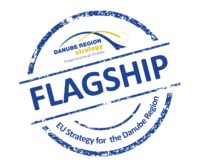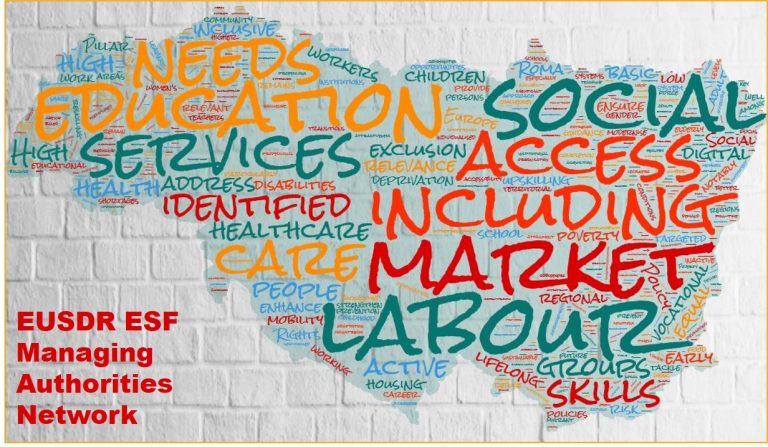Network, ongoing since 2015
EUSDR Priority Area(s): PA 9 People & Skills, PA 10 Institutional Capacity & Cooperation
Submitted by: PA 9 & PA 10
The Network of ESF Managing Authorities (MAs) in the Danube Region constitutes a platform to facilitate the exchange and the coordination between the ESF MAs in the Danube Region, the respective Priority Areas of the EUSDR and the European Commission as well as further relevant stakeholders. It aims at fostering transnational cooperation and coordination within the ESF Operational Programmes in the Danube Region, to thereby connect cooperation and investment, and serve as a joint knowledge hub for implementation, planning and exchange of experience with social policies. In doing so, the network seeks to improve social cohesion through exchanging knowledge and increasing capacities.
The network is organised by EUSDR PA 9 “People and Skills” and EUSDR PA 10 “Institutional Capacity” together with the ESF Managing Authorities in the Danube Region and other partners.
Objectives
The ESF MA Network embeds the targets of the EUSDR into the ESF programmes and fosters transnational cooperation in the EU-MS in the Danube Region. The network aims at:
- Developing a common understanding of the role of the EUSDR in relation to the ESF / ESF+;
- Consolidating the network: Enhancing Know-how-transfer and co-designing of a state of the art of social innovation; capitalising on and disseminating good practice out of project results and experiences;
- Handling spill-over effects: Curbing and/or managing negative spill over effects and increasing the positive impact through closer coordination;
- Managing transnational cooperation: Building a viable programme framework to foster transnational cooperation.
Need and (expected) impact
In 2015, the ministers in charge for EU funding in the Danube Region expressed the need for better coordination of funding and embedding of the EUSDR in ESIF Programmes. Against this background, the ESF Managing Authorities in the Danube Region launched together with representatives of the EUSDR the Network of ESF Managing Authorities in the Danube Region. In the funding period 2021-2027, the need for embedding macro-regional strategies in EU Cohesion Policy Funding has been reiterated. Building on the experience of the previous funding period and exchange with other macro-regional MA networks, the ESF Network in the Danube Region will continue its efforts to foster transnational cooperation in the ESF+ and thereby support the implementation of the EUSDR Action Plan.
Macro-regional dimension
The network addresses the ESF+ Managing Authorities in the Danube Region. In addition, the network plans to reach out to non-EU member states to exchange on social policies beyond the European Union. One of the future meetings is envisaged to be dedicated to capacity building in the field of social/employment policies between EU MS and (potential) candidate countries.
Stakeholders involved
Representatives of the EUSDR (PA 9, PA 10), ESF Managing Authorities (Baden-Württemberg/Germany, Slovakia, Croatia, Slovenia, Hungary, Czech Republic, (Bulgaria)), national line ministries, European Commission (DG EMPL and DG REGIO), CSO & NGOs.
Budget and Funding
The network is enabled by the PAC projects (via Danube Transnational Programme) & national funding (MAs)
Further information
https://peopleandskills.danube-region.eu/esf/
https://capacitycooperation.danube-region.eu/esf-network-danube-region/
Contact
PA 9: Roland Hanak, Ministry for Labour, Austria, and Barbara Willsberger, L&R Social Research,
PA 10: Claudia Singer,

>> Download Certificate <<



